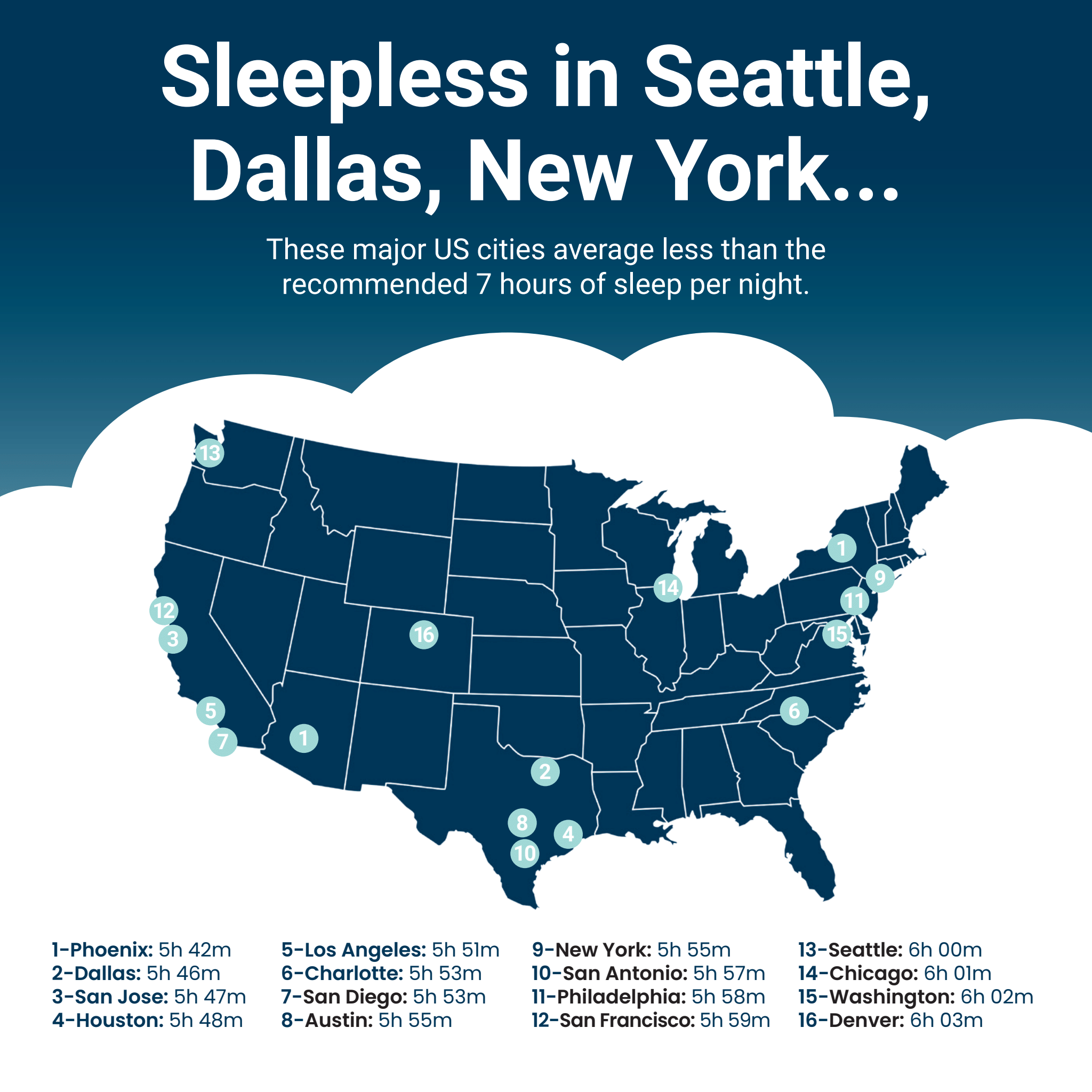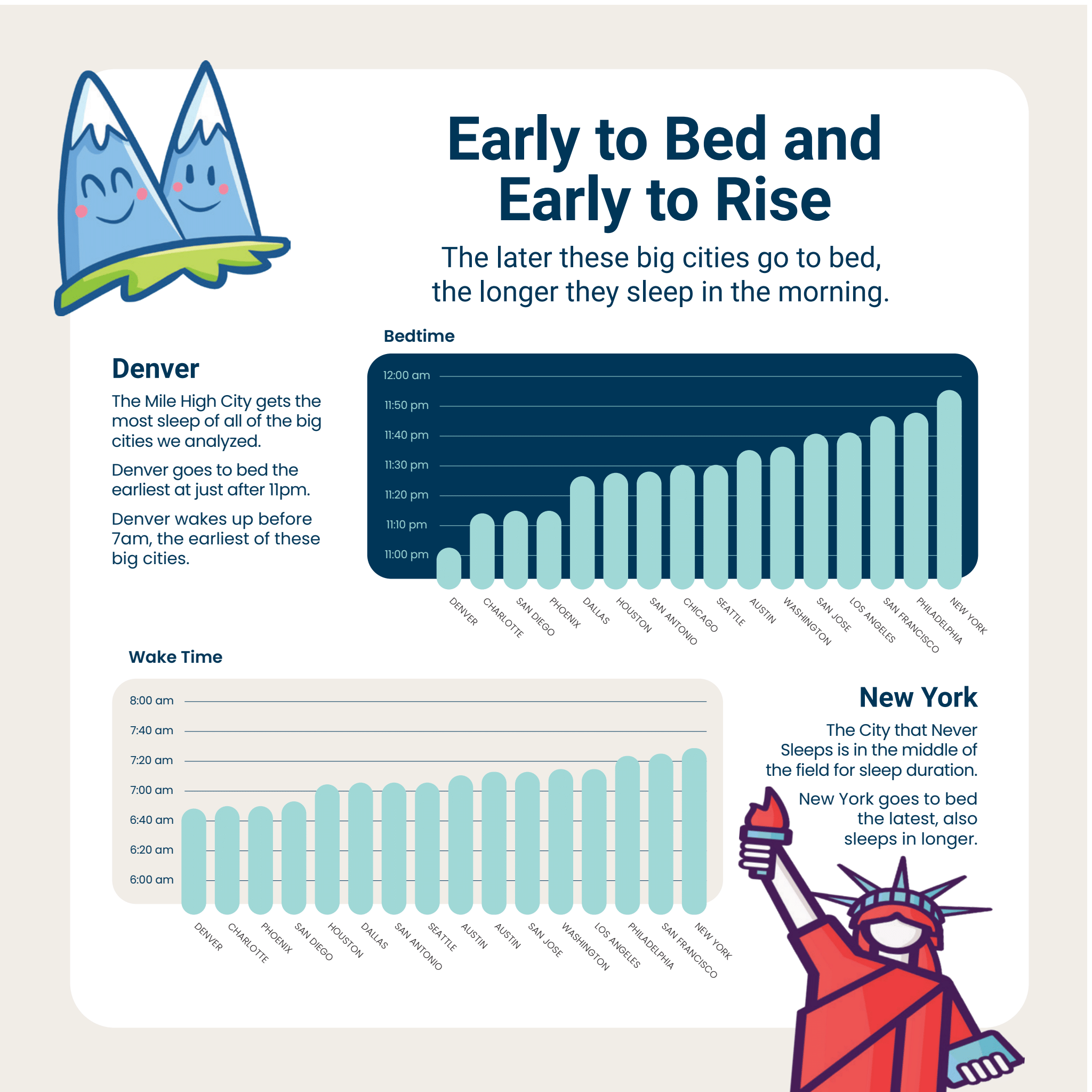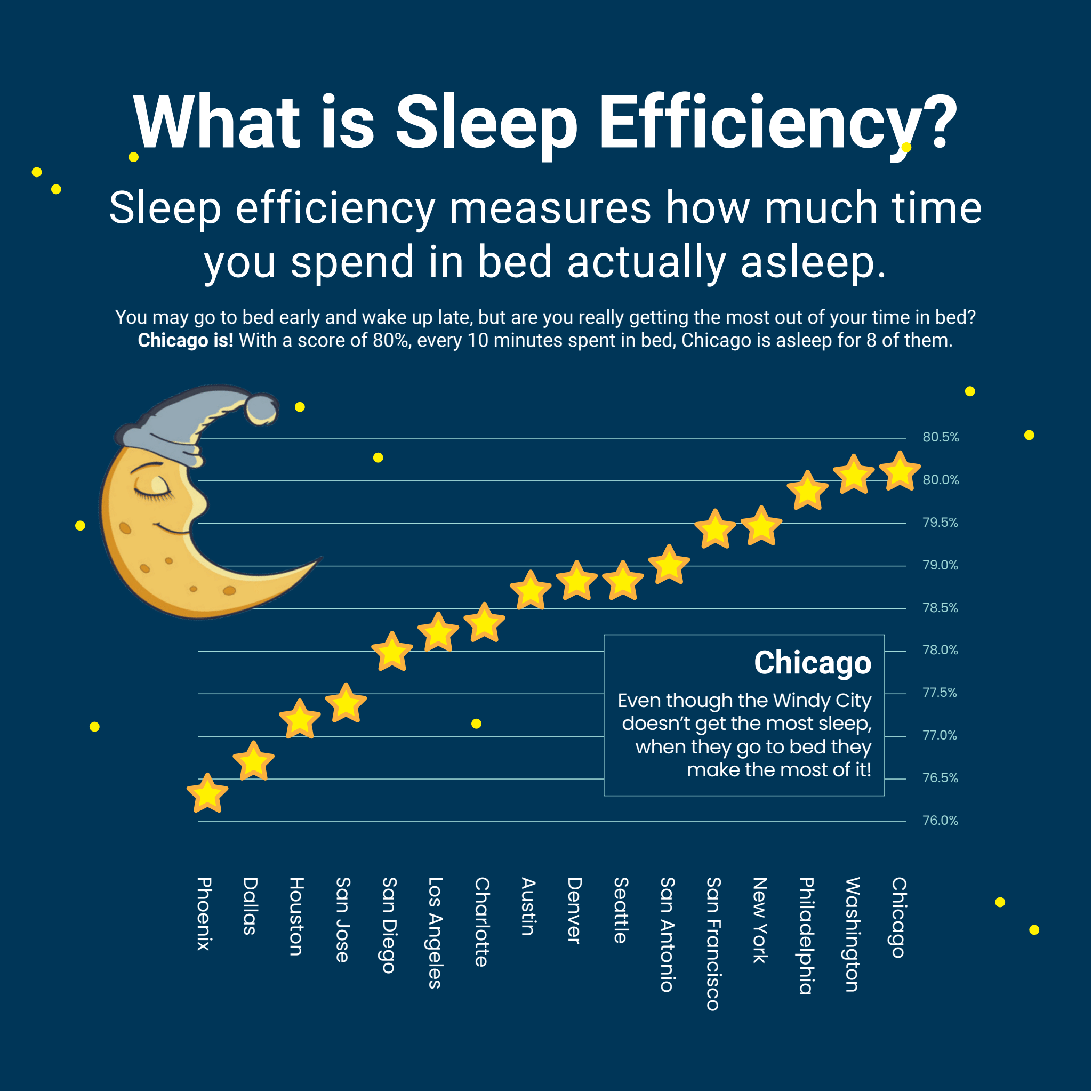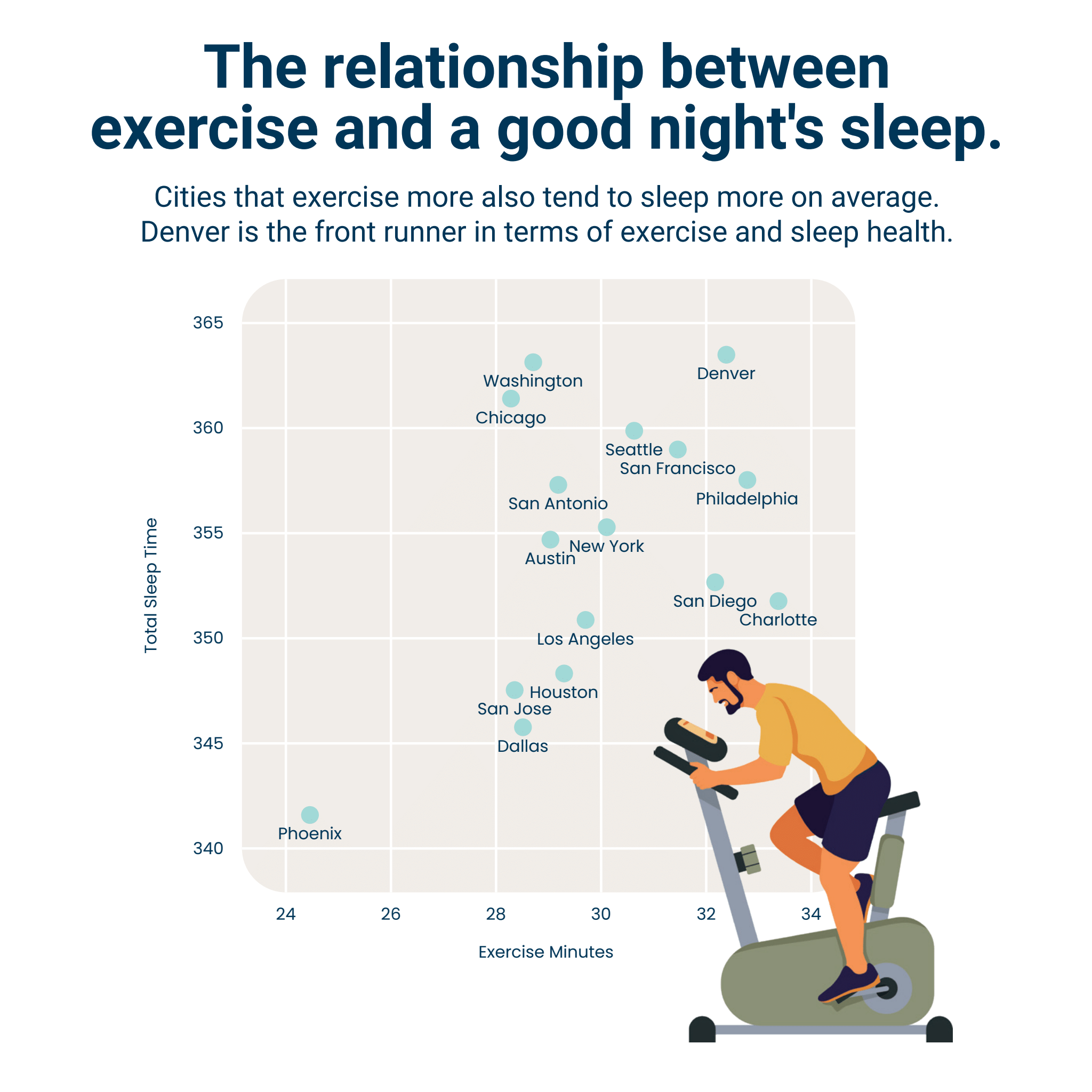These Big Cities are Short on Sleep

We’re taking a look at some of the biggest US cities to see who’s sleeping the best, the worst, staying up the latest, and more.
Who’s getting the most sleep?
At the top of the list is Denver, and given that Denver consistently comes in near the top of many ‘Healthiest Cities’ lists across the country, we’re not surprised that their approach to sleep health is no different. At the bottom of the list lies Phoenix. One thing is clear across each major city we investigated: no one is clocking in above 7 hours of sleep on average.
Experts agree that a solid 7-9 hours per night is necessary to reap all the benefits of healthy sleep, like a recharged body, refreshed mind, and a more energetic feeling throughout your day.

Who’s staying up the latest?
We always hear that New York is the city that never sleeps. Perhaps that’s not really painting the full picture. According to SleepScore’s analysis, they’re actually the city that stays up the latest. New Yorkers also wake up later than many cities. Denver lands at the top of the list here too, as they appear to be setting aside more time to get their proper Zzzs compared to the rest of their big city counterparts.
Revenge bedtime procrastination, doomscrolling — the list of reasons we’re staying up later gets longer all the time. Electronic use before bedtime is a known sleep disruptor, and 73% of SleepScore poll respondents report always using electronics before bedtime. A couple tips for those who scroll through their phone late at night are to set a designated time to turn off your phone or to protect yourself against blue light by investing in blue light blocking glasses.

Who’s making the best use of their time in bed?
We’re not talking about time spent in bed watching TV or hanging with a partner; we’re talking sleep time! The SleepScore team looked at sleep efficiency across cities, essentially looking at who gets the most recorded hours of sleep in the time frame they are in bed. The trend shows that cities who are getting more sleep aren’t necessarily the most efficient at it, like Denver, or Seattle, whereas Chicago is much more efficient. This lends to the idea that if cities like Chicago allocated more time in bed and maintained the same level of efficiency, in theory they could be getting more sleep in a shorter amount of time at night.

What about lifestyle factors like working out?
We can see that cities with higher exercise rates also tend to get more sleep on average. Denver again shows up as a front runner in terms of exercise and sleep health, with Seattle and San Francisco not far behind.
Experts recommend getting 30 minutes of exercise five days per week.Exercising no later than mid-day can make it easier to relax before bedtime. In a recent SleepScore Poll, 52% of users said they preferred a morning workout over an evening one. But if evening activity is more your style, try to leave a 3-4 hour window between the end of your workout and bedtime.

How else can I improve my sleep this month, and beyond?
It’s important to take the steps to improve your sleep, whether your city is sleeping well or not. Try implementing a few more ideas like these this month and see if you start feeling more energized and focused each day!
- Create a Pre-Sleep Routine – In addition to going to bed at the same time each night, creating a bedtime ritual is an important sleep hygiene habit. Doing the same behaviors in the same order at the same time each night before your head hits the pillow will signal to your body that it’s time to sleep soon.
- Think Dark or Dim – Once you’ve finished with dinner and dishes, it’s a good idea to start dimming the lights in your home. This tells your brain that sleep is on the horizon, and you’ll naturally start powering down. Cover windows, shut doors, and use sleep masks as necessary.
- Watch What You Eat – Be mindful that your diet can affect sleep. Large meals or spicy foods can disrupt sleep. Finish your dinner on time and avoid late night snacking. If you have a large meal too close to bedtime, your body will focus on digesting as opposed to helping you get some sleep.
- Avoid Lying Awake in Bed – If you find yourself lying in bed unable to drift off after about 20 minutes, it’s recommended that you get up and try to relax somewhere else, like in a comfortable chair in a different room. Do something that you find calming rather than activating. When you start to feel sleepy, get back into bed. This is part of helping your mind associate your bed with being asleep rather than your bed being a place where you’re awake.
SleepScore Labs Solutions
Download the free SleepScore App for insights and articles on how well you sleep, the quality and quantity of your sleep cycles, and sleep improvement progress with science-backed tips and insights. Download it for free from App Store and Google Play Store!
You can also visit the SleepScore Store for a wide range of sleep-promoting products carefully curated by SleepScore Labs’ team of researchers to support your sleep-wake schedule!
Sleep well!